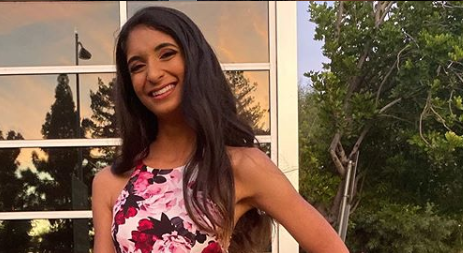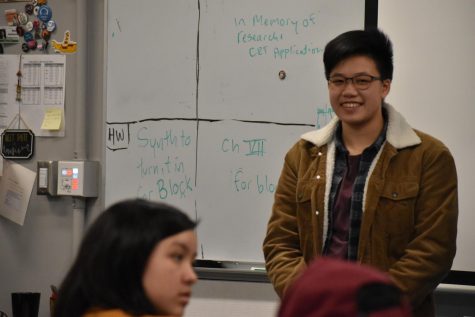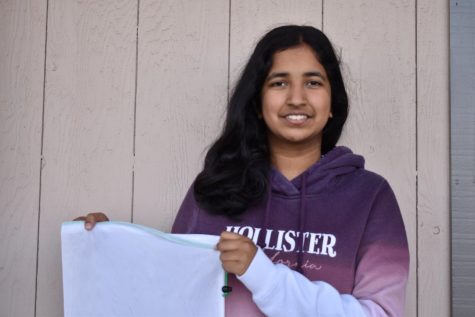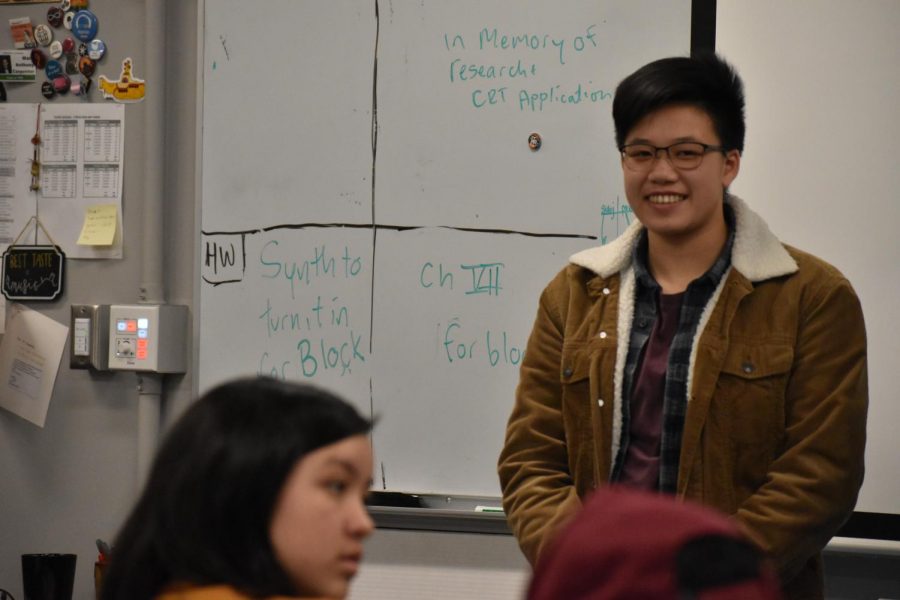Agents of change: the stories of students who actively create social change
MVHS student activists share their experiences
SACHI ROY:

For as long as she can remember, junior Sachi Roy has been interested in social change and improving the lives of her community. Roy currently has hopes of improving MVHS’ high-stress environment. To do this, Roy has been gathering the input of students via social media platforms such as Instagram.
“I feel like MVHS just in general needs a stronger voice, and they do need to be heard more, and I kind of want to be that kind of voice,” Roy said. “So it was not really a project. It’s more of just, I’m trying to collect basically input from students on things that they think the school or the district in general needs to improve on.”
After gathering information from fellow students and formulating a census of the general issues at MVHS, Roy plans to present these to administration. The topics that Roy believes are most important and impact student life are teachers, clubs, activities and mental health. Aside from highlighting the issues Roy sees within MVHS, Roy hopes that by gathering data and directly bringing up these issues, real and positive action will be taken.
For Roy, this is one of her first major steps into activism; prior to this, Roy has supported or promoted issues online, such as the Australia fires among other global issues. Additionally, after smoke issues and complaints took place at MVHS during the Camp Fire, Roy decided to investigate the issue. Roy had a meeting with the principal and after discussion, learned more details about the situation. Using this, she was able to dispel misconceptions and became the liaison between students and staff. Since then, Roy has been motivated to continue acting as a bridge between students and administration in order to improve MVHS’ learning environment.
Regarding how to approach issues, Roy believes that the best action is when both parties and sides are in the know, something Roy herself practices and advocates for. Roy says that a perfect solution isn’t necessarily one that fulfills or solves all the problems, but rather one that both parties can accept. In order to come closer to reaching solutions, Roy believes that it’s important to look at different perspectives and create a nuanced take. As Roy sees it, currently, one of the most difficult things regarding the current generation’s culture is people taking action without looking into the details and villainizing a party.
“I think that, that [negativity] has embedded itself into our media’s culture, so I think on social media, especially you can see that it’s not as positive and well meaning as it could be,” Roy said. “But I do see that there are, for example, people taking action to support Australia.”
On a school level, Roy believes that there should be an equal understanding between students and building and district administration. While Roy understands the sentiments of students being upset with certain district decisions, having felt the same, Roy believes the answer to that is to educate herself. For Roy, this means becoming more involved with the district and going to board meetings in order to better understand.
“I just hope that I can make the school a better place and not a place where we talk about it as if it’s hell on this earth and that we wish we would go to any other school because I love MVHS, as cheesy as that sounds,” Roy said. “[MVHS] is pretty much my second home and the fact that people don’t feel safe or they feel pressured by it and by its community, I just really hope that, that can change and that the district will listen to what I have to say.”
NATHAN LEE:

Senior and co-president of MVHS’ Gender and Sexuality Alliance (GSA) club Nathan Lee has been advocating for LGBTQ+ rights for over four years. Lee and other GSA members have been working on outreach to administration, discussing name change paperwork for trans students and advocating for more gender neutral bathrooms. One major step Lee and other members have been trying to accomplish is a gender neutral locker room, and while Lee will not be able to see it through to fruition, he hopes that future and current GSA members will be able to make it happen.
“We do lots of events for visibility, we talk to the freshmen every year [and] we’re working with the bio teachers to revamp the sex-ed to make it more clear and less uncomfortable,” Lee said. “I think this year, we also have plans to talk to the Regional Library to talk about installing a gender neutral bathroom because that’s important for a lot of kids who go there.”
The issue over gender neutral bathrooms and locker rooms is particularly important for Lee because he is a queer athlete in swimming. Lee believes that trans students and particularly those involved in sports need to have their own safe space. Lee believes that it’s his duty as GSA president to continue doing outreach and advocacy for those unable to come out to their community.
When it comes to creating change, Lee mentions that taking action outweighs that of digital promotion. While Lee admits that spreading awareness on social media sites can have a net positive, the actual amount of help and impact is limited. Lee admits that while spreading awareness is positive, it is funding and action that make the most impact.
“I just feel like especially with the social media, there’s a big focus on just spreading awareness, whatever that means,” Lee said. “And instead of actually doing things to combat the injustice, as you see, because at the end, if everybody knows about an issue, but nobody’s talking about it, there’s no point in talking about it.”
Currently the biggest problem Lee is facing with getting clearance for much of GSA’s projects is funding. Despite not being able to get the locker room, Lee and fellow GSA members will continue advocating for LGBTQ+ rights. Lee and the GSA club has continued to host meetings to promote action, and has held discussions with the staff about how to be a good ally.
“In general, we’re trying to do more education, specifically with the underclassmen and the staff, and just hammering the importance of respecting pronouns, or respecting people’s identities and just clearing up any confusion around the different terms in the community,” Lee said. “From what we’re understanding, the ball is ready to roll. We just need to keep pushing it.”
SRAVANI VISWANADHA:

Since taking AP Environmental Science (APES) this year, senior Sravani Viswanadha has been encouraged to be more proactive in her community when it comes to helping the planet. On Facebook, Viswanadha created a post about her family’s recent purchase of a reusable cloth bag, and in that post included various facts about recycling. Viswanadha linked out to where students could buy these reusable bags in hopes of getting others to follow suit.
“I think the first thing has to start with just your attitude in general,” Viswanadha said. “You can’t just view everything as like, ‘Okay, well, the Earth is already so damaged. There’s not much we can do now to fix it.’ There’s still a way to fix it. We just have to have that attitude that things can still change, and that we can go out and change them.”
Viswanadha became motivated because of what she had learned at school and believes that if others have the same experience, they will also become more proactive. Initially, Viswanadha was unaware of how large the scope of climate change was and after learning of its pervasiveness on both a global and local level, became inspired to start encouraging others to act.
Aside from sharing information about reusable bags, Viswanadha has helped raise awareness about mental health in past years. In this instance, Viswanadha and other individuals read picture books to children and explained mental health issues and the importance of communication.
“I think it starts with an issue that you care about,” Viswanadha said. “So for example, I care about [MVHS’] music program, that’s why I do my part, I try to sell as many plants as I can every year, but most people don’t care about that. They care about other things like robotics, maybe they do fundraisers that are [for] other things like helping the world [or] cancer societies all of those kinds of things. It starts with something that you really care about.”
Viswanadha, while seeing the value in donations, believes that more can be gained by taking direct action. Having previously donated money to causes, Viswanadha understands that the money likely goes to the respective issue, however the feeling and motivation gained from that pales in comparison to actually doing the work yourself.
“Talking to people, helping the homeless, going to the beaches and picking up trash, I feel like that’s when you start to form not only like the good habit of helping others and everything around you, but then just feeling motivated to do it again,” Viswanadha said. “I think that’s a much better way to go.”

